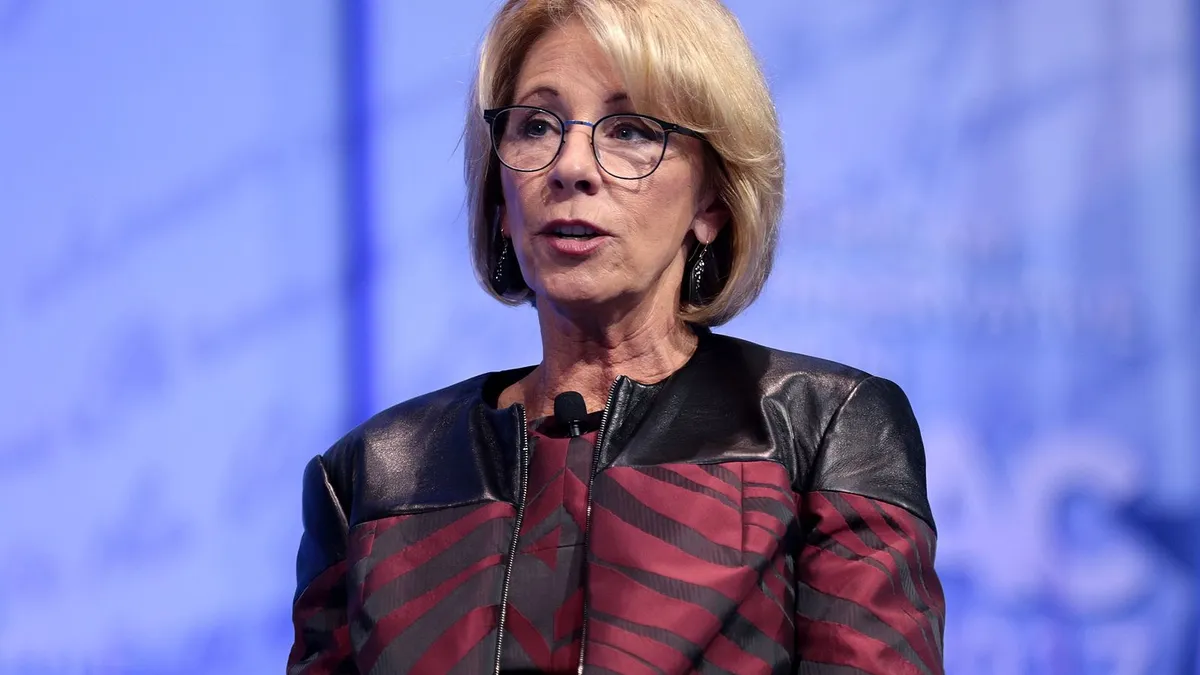Dive Brief:
- On Friday, Education Secretary Betsy DeVos repealed the gainful employment rule, an Obama-era regulation that sought to cut off federal funding to poor-performing career-education schools, The New York Times reported.
- DeVos has argued that the rule singled out for-profit schools, which accounted for a disproportionate share of programs that didn't meet the regulation's new standards.
- Although the gainful employment rule won't be repealed until July 2020, the U.S. Department of Education hasn't been enforcing it, The Washington Post reported.
Dive Insight:
The Obama administration crafted the gainful employment rule to crack down on predatory for-profit colleges that left students with debt they couldn't pay off. However, the Trump administration's Ed Department has delayed most parts of the rule from taking effect.
Even so, proponents of the rule said it successfully weeded out programs that left students with crushing debt. For instance, an analysis from New America, a bipartisan think tank, found in 2017 that around 300 programs that failed to meet the rule's standards have been shut down.
Notably, several of those programs were run by ITT Technical Institute, a for-profit chain that collapsed in 2016 after facing accusations that it preyed on students and left them with considerable debt. Last year, former ITT students won $600 million in loan forgiveness.
The rule's repeal has been met with fierce criticism.
"The decision to completely repeal gainful employment is an attack on students whom the U.S. Department of Education is trusted with protecting," Denise Forte, senior vice president for partnership and engagement at The Education Trust, said in a statement. "Eliminating this rule will mean that predatory programs, many of them at for-profit colleges, will continue to access billions of federal dollars while harming students financially."
Over the next decade, the repeal will cost an estimated $6.2 billion in federal student aid, which some contend will go to low-quality programs. Rep. Bobby Scott, D-Va., the chair of the House education committee, said in a statement that the repeal underscores the need for Congress to pass a rewrite of the Higher Education Act "that protects students and taxpayers from low-quality for-profit schools."
DeVos has touted the expansion of the College Scorecard — a consumer-facing tool that houses data on colleges, such as their graduation rates and demographics — as a way to hold institutions accountable. The Ed Department added preliminary data to the online database last month, though critics say transparency remains an issue.
However, in a statement issued Friday, DeVos said the College Scorecard update is "only the beginning."
"These important reforms are a more complete and effective way to hold all types of higher education institutions accountable," she said. "This administration will continue to put students first and make sure they not only have a multitude of pathways to success post-high school but also the information they need to make the best choices for themselves."











